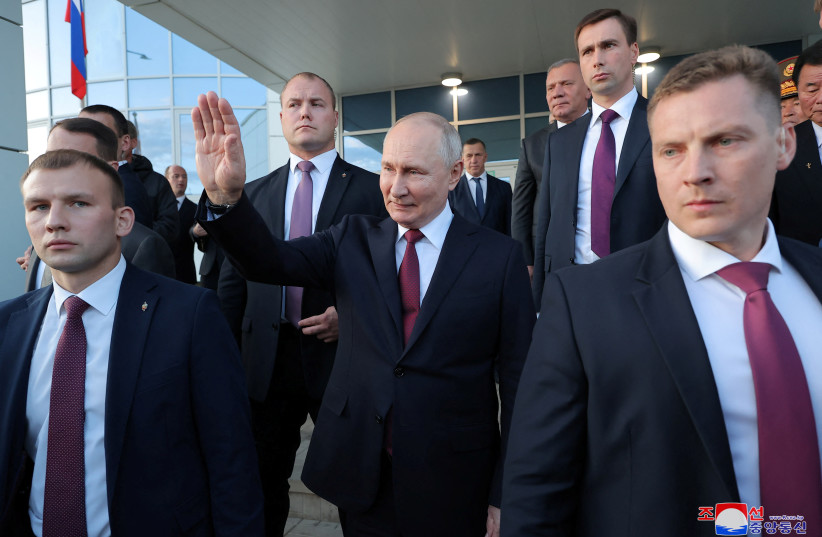President Vladimir Putin said on Thursday that Russia had successfully tested a potent new strategic missile and declined to rule out the possibility it could carry out weapons tests involving nuclear explosions for the first time in more than three decades.
Putin said for the first time that Moscow had successfully tested the Burevestnik, a nuclear-powered and nuclear-capable cruise missile with a potential range of many thousands of miles.
He also told an annual gathering of analysts and journalists that Russia had almost completed work on its Sarmat intercontinental ballistic missile system, another key element of its new generation of nuclear weapons.
What would happen if Russia was attacked?
Putin, who has repeatedly reminded the world of Russia's nuclear might since launching his invasion of Ukraine on Feb. 24, 2022, said no one in their right mind would use nuclear weapons against Russia.
If such an attack was detected, he said, "such a number of our missiles - hundreds, hundreds - would appear in the air that not a single enemy would have a chance of survival."

Russia has not conducted a test involving a nuclear explosion since 1990, the year before the collapse of the Soviet Union, but Putin declined to rule out the possibility it could resume such testing.
He noted that the United States had not ratified the treaty that bans nuclear tests, whereas Russia had both signed and ratified it. It would be theoretically possible for the Duma, Russia's parliament, to revoke its ratification, he said.
Military analysts say a resumption of nuclear testing by Russia, the United States or both would be profoundly destabilizing at a time when tensions between the two countries are greater than at any time in the past 60 years. In February, Putin suspended Russia's participation in the New START treaty that limits the number of nuclear weapons each side can deploy.
But there was no need, Putin said, for Russia to rewrite its doctrine on the actual use of nuclear weapons, which says it may fire them either in response to a nuclear strike against it or in the event of a threat to the existence of the state.
Responding to a question from Russian analyst Sergei Karaganov, who has advocated lowering the threshold for nuclear use, Putin said: "I simply don't see the need for this."
He added: "There is no situation today in which, say, something would threaten Russian statehood and the existence of the Russian state. No. I think no person of sound mind and clear memory would think of using nuclear weapons against Russia."
Karaganov has raised eyebrows among both Russian and Western strategic analysts by arguing that it is time for Russia to lower its threshold for nuclear use in order to "contain, frighten and sober up our opponents."
He wrote in one recent article that Russia should "shake up" its enemies by threatening nuclear attacks on European countries and US bases in Europe.
